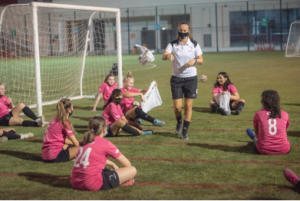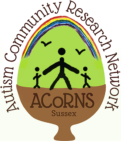Temple Grandin
In our February meeting we discussed a TED Talk by Temple Grandin: “The world needs all kinds of minds”. She celebrated that autistic brains have different ways of thinking and that these different ways of thinking are essential for society to function. It was an interesting talk to hear from her perspective. We were cautious that some of her ideas may seem dated now and that it is important to consider that this is autism from her perspective and it might be different for many others.
Mentors
One topic we spoke about was the importance of mentors for children with autism. Mentors help children relate to others and can spark learning in things they are passionate about. We suggested mentors would be helpful for many autistic children’s wellbeing as it’s someone they can relate to. We thought a formal setup could be in place for families to find support from a mentor to inspire autistic children. Although this might already be happening in local areas maybe this could be used more widely and could be really beneficial for these children.  We highlighted that this might be particularly useful for autistic girls given the rarity of autistic role models easily accessible for young girls.
We highlighted that this might be particularly useful for autistic girls given the rarity of autistic role models easily accessible for young girls.
Person-centred practices for diversity
Mentors could help autistic children in areas they thrive in not just in areas they struggle with. We discussed the importance of inspiring young children with what they’re passionate about rather than just focusing on deficits. Person-centred practices are one of the ways we can address diversity through understanding that everyone has different experiences and strengths. As an outsider trying to help we should access as many viewpoints as possible to hear autistic voices while understanding each representation is different and what autism means to them will be different.
Strength based approaches
The group felt that approaches focusing on repairing deficits could be flipped to make psychological advice positive and strength based. Focusing on autistic children’s strengths can be really effective to engage people’s interests and skills. For example we spoke about if a child has a great fascination for cars to use this passion to help them learn in areas they might struggle in. What can they do with this passion/strength to help communication? Each child’s strengths will be different which is the wonderful thing about autism and we need to use these different strengths to support each child.
There was a great metaphor to explain the importance of using an individual’s interests:
Someone with autism said their brain was like a motorway and if there is too much information there is a traffic jam. Too many inputs blocks everything. To allow the roads to run freely that individual needs to focus on the right subject. This metaphor represents the idea that the brain can be easily overwhelmed but to clear these ‘motorways’ and individual can talk about subjects they like to get going again.
The importance of diversity
Finally, it was discussed that embracing differences is important and people should feel ok to be different. Sometimes when children are masking it often makes them feel like someone they aren’t and this can be hard. When some adults are diagnosed later in life it can help to know where differences are and in what aspects of their life do they need extra support. We need to support autistic children in a similar way. Supporting children to understand their differences while developing confidence in support in these areas, can help people live their best life in their own way.
Temple Grandin’s Ted Talk is available here
